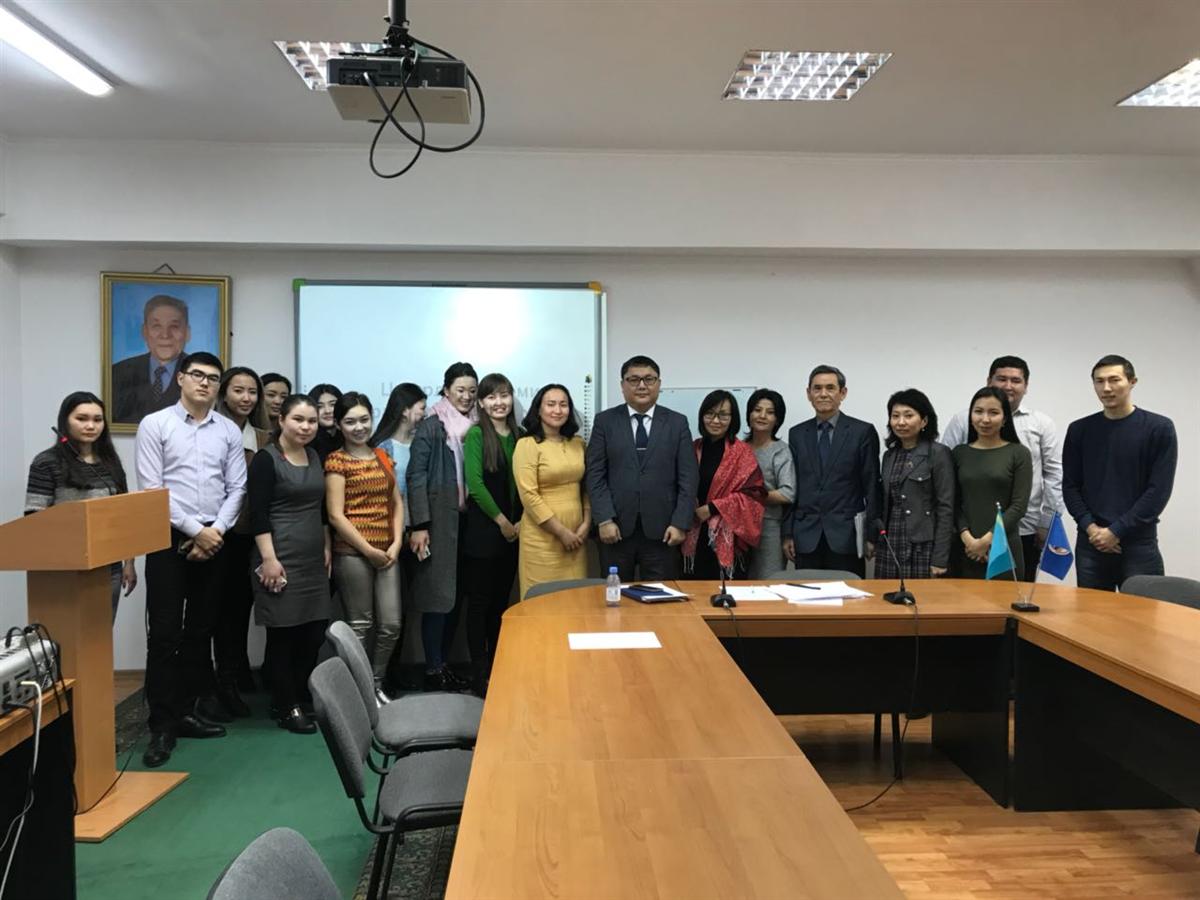On the Higher school of economics and business a round table was held on the theme "Digital economy - strategy and implementation mechanisms"
Views: 4060

On February 27, 2018, a round table was held on the topic " Digital economy - strategy and implementation mechanisms " organized by the Finance Department of the High school of economics and business of the Al-Farabi Kazakh National University. The professional and teaching staff, doctoral students and undergraduates of the High school of economics and business, as well as experts from the Almaty region akimat took part in the event and shared their views.
The round table was opened by the director of the Center for Economic Research Sayabek Tattybekuly. The Director briefly outlined the main measures for the implementation of the recently adopted State Program "Digital Kazakhstan" and gave detailed information on key aspects of the digital economy. Young scientist PhD doctor Raigul Doszhan stressed the importance of digital economy. The participants of the round table doctor of economic sciences, professor of the Department of “Management and marketing” E.B. Zhatkanbaev, doctor of economic sciences, professor of the Department of “Finance” Kazbekov B.K., candidate of economic sciences, associate professor S. Oserbaiuly, candidate of economic sciences, acting assistant professor A.S. Asilova, senior teacher A.Zh. Turlybekova considered the main disadvantages and advantages of creating digital Kazakhstan.
The first year undergraduates in the specialty "Finance" made reports on this topic.
The topic was discussed in detail, in particular, the issues of the importance of new digital culture technologies and blocking technologies were discussed, as well as the creation of an international currency in the crypto currency; compliance with the requirements of the digital economy, focusing on the development of information analysis skills and creative thinking in digital education; analysis of the world trends in digital agriculture was made and the issues of effective introduction of new knowledge and science transfers in the industry, as well as provision of agriculture with digital technologies, were considered; issues of implementing a set of measures for the technological re-equipment of key industries for productivity growth, which uses elements of the fourth industrial revolution; issues of enhancing the country's competitiveness by creating digital platforms for the development of the country's digital tourism industry.








